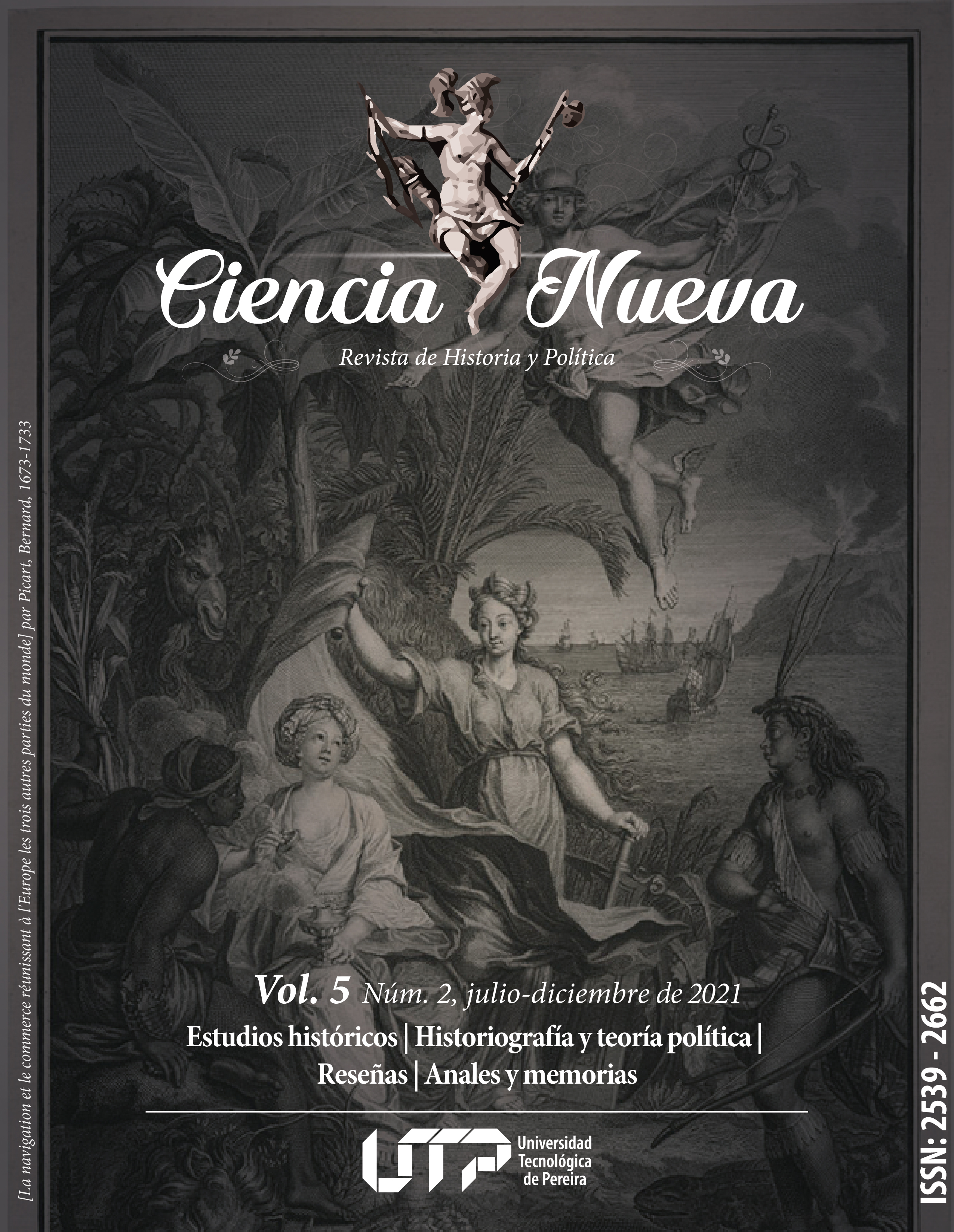What can social scientists learn from Freud and his heirs? An approach to psychoanalysis as a tool for social sciences
DOI:
https://doi.org/10.22517/25392662.24895Keywords:
Psychoanalysis, mind, cognition, U unconscious, civilization, drivesAbstract
The following article is a reflection that analyzes some of the postulates of Sigmund Freud's psychoanalytic theory and the methodological possibilities it offers for the various disciplines of the social sciences. The most important assertions of the Austrian doctor will be exhibited in relation to the inexorable link that is built between the psychic apparatus (with its respective evolution) and the formation of social restrictions, laws and institutions. It is necessary to expose these theoretical crystallizations in order to elucidate, at least from a concrete perspective, how the most important processes in the constitution of civilization throughout history have been forged. Subsequently, a highly relevant concept such as "ideology" will be explained through two declared heirs of Freud such as Althusser and Žižek.
Downloads
References
Althusser, Louis. Freud y Lacan. Buenos Aires: Ediciones Nueva Visión, 1988.
Althusser, Louis. Ideología y aparatos ideológicos del Estado. Buenos Aires: Ediciones Nueva Visión, 1988.
Bachofen, Johan Jakob. El matriarcado. Una investigación sobre la ginecocracia en el mundo antiguo según su naturaleza religiosa y jurídica. Madrid: Editorial Akal, 1987.
Borch-Jacobsen, M. y D. Brick. «The Oedipus Problem in Freud and Lacan». Critical Inquiry 20, n.º 2 (1994): 267-282. http://www.jstor.org/stable/1343911
Campbell, Joseph. The hero with a thousand faces. Princeton: Princeton University press, 2004.
Drassinower, Abraham. Freud´s theory of culture. New York: Rowman & Littlefield Publishers, Inc., 2003.
Durkheim, Émile. Reglas del método sociológico. México: Fondo de Cultura Económica, 2001.
Frazer, James. La rama dorada. Magia y religión. México: Fondo de Cultura Económica, 1944.
Freud, Sigmund. The Ego and the Id. London: Hogarth Press, 1926.
Freud, Sigmund. Moses and Monotheism. London: The Hogarth Press, 1939.
Freud, Sigmund. Three essays on the theory of sexuality. New York: Basic Books, 1963.
Freud, Sigmund. Conferencia. Psicoanálisis y psiquiatría. Buenos Aires: Editorial Amorrortu, 1990.
Freud, Sigmund. Psicología de masas y análisis del yo. Buenos Aires: Editorial Amorrortu, 1990.
Freud, Sigmund. Tótem y tabú. Buenos Aires: Editorial Amorrortu, 1991.
Freud, Sigmund. El porvenir de una ilusión. Buenos Aires: Editorial Amorrortu, 1992.
Fromm, Eric. Anatomy of human destructiveness. New York: Holt, Rinehart and Winston, 1970.
Gerber, Daniel. El psicoanálisis en el malestar en la Cultura. Buenos Aires: Editorial Lazos, 2005.
Jung, Carl Gustav. The archetypes of the collective unconscious. Princeton: Princeton University Press, 1968.
Kaye, Harper L. «Was Freud a Medical Scientist or a Social Theorist? The Mysterious "Development of the Hero"». Sociological Theory, 21 (2003); 374-391.
Le Bon, Gustav. The Crowd: A Study of the Popular Mind. New York: MacMillan, 1896.
Iriarte, Ana. De Amazonas a ciudadanos. Pretexto ginecocrático y patriarcado en la antigua Grecia. Madrid: Editorial Akal, 2002.
Marcuse, Herbert. Eros y civilización. Madrid: Editorial Sarpe, 1983.
McDougall, William. Introduction to Social Psychology. London: Methuen & Co, 1908.
Mullahy, Patrick. Oedipus: myth and complex: a review of psychoanalytic theory. New York: Hermitage Press, 1948.
Nietzsche, Friedrich. The gay science. Leipzig: E.W. Fritzsch, 1887.
Pasqualini, Mauro. Psicoanálisis y teoría social. Buenos Aires: Fondo de Cultura Económica, 2016.
Peters, R. «Freud's Theory». The British Journal for the Philosophy of Science 7, n.º 25 (1956); 4-12.
http://www.jstor.org/stable/685932
Platón. Leyes. Madrid: Editorial Gredos, 1999.
Roll, David. La política al diván: las explicaciones psicológicas de la política en Freud, Fromm y Marcuse. Medellín: Editorial de la Universidad Pontificia Bolivariana, 2011.
Reich, Wilhelm. Psicología de masas del fascismo. Madrid: Ediciones Castilla, 1970.
Rubinstein, Sergei. El ser y la conciencia. México: Editorial Grijalbo, 1963.
Smith, Robertson. The religion of the Semites. London: Adam & Charles Black, 1901.
Schopenhauer, Arthur. Parerga y paralipómena: escritos filosóficos menores. Barcelona: Editorial Trotta, 2006.
Weber, Max. Economía y sociedad. Esbozo de sociología comprensiva (México: Fondo de Cultura Económica, 2002.
Zepf, Siegfried y Florian D. Zepf. «"You are Requested to Close an Eye": Freud’s Seduction Theory and Theory of the Oedipus Complex Revisited». Psychoanalytic Review, 98, n.º 3 (2011): 288-310.
Žižek, Slavoj. Sublime objeto de la ideología. Buenos Aires: Editorial Siglo XXI, 2003.
Žižek, Slavoj. Menos que nada. Hegel y la sombra del materialismo dialéctico. Madrid: Editorial Akal, 2019.
Downloads
-
Vistas(Views): 851
- PDF (Español (España)) Descargas(Downloads): 400
- HTML (Español (España)) Descargas(Downloads): 44
Published
How to Cite
Issue
Section
License
Copyright (c) 2021 Juan Sebastián Ocampo Murillo

This work is licensed under a Creative Commons Attribution-NonCommercial-NoDerivatives 4.0 International License.
For all articles published in Ciencia Nueva, revista de Historia y Política, the ownership of the exploitation rights of the contents of the journal belongs to the author(s).
The works of this magazine are under the Creative Commons Recognition-NonCommercial-DerivativeLicense:




